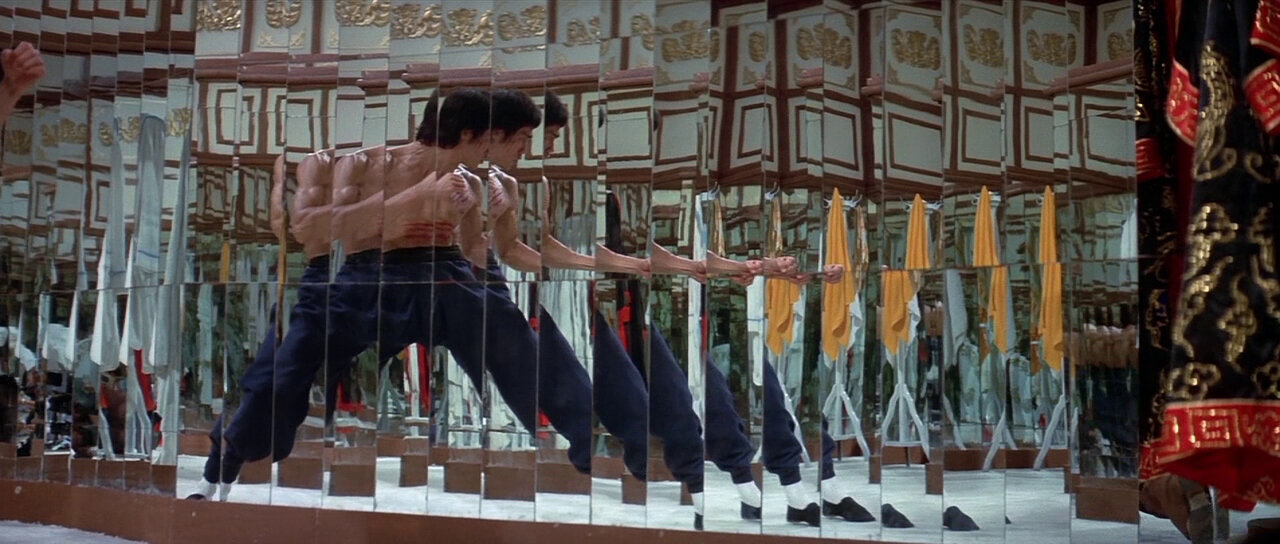My Complicated Relationship with Bruce Lee
By Thomas Lee
Editorial Director of “We Are Bruce Lee”
When I was a kid, the children at school would make fun of me because I shared the same last name as Bruce Lee.
Not terribly clever racist humor but I suppose that's the best 10-year olds could come up with at the time. They also made fake karate chops at me and imitated Bruce Lee's well-known vocal gymnastics when he was just about to fight an opponent.
In any case, their cruelty had the desired effect. I was embarrassed and ashamed. I did not want to be associated with Bruce Lee; in fact, I didn't want to be associated with anything Asian. I wanted to be just like everyone else, which means I wanted to be just like the white kids who dominated my school and hometown.
To this day, I still reflexively wince when I hear his name.
Fortunately, decades of life experience have offered me a deeper perspective on my complicated relationship with the martial arts legend.
People of color in the United States share a common experience of systematic racism and marginalization from positions of influence, wealth, and power. But POC face challenges unique to race or ethnicity.
For African Americans, the Black Lives Matter movement has highlighted police brutality based on society's broad presumption (reflected in a deeply racist criminal justice system) that black people are violent criminals. However, Asian Americans are cursed by the presumption that we are foreigners, outsiders who do not belong in America no matter our birthplace or citizenship status.
As a result, Asian Americans in particular have historically lacked representation in the media and pop culture. Warner Brothers rejected Bruce Lee as the lead actor in the "Kung Fu" television series he pitched because of his accent.
David Carradine in the 1972 television series "Kung Fu," a role meant for Bruce Lee. (Photo: IMDB)
Audiences, the suits reasoned, would not accept Bruce Lee because his accent made him sound too foreign. But I suspect his physical looks (black hair, slanted eyes) also played a big role. Bruce Lee just didn't look or sound white enough. Or at all.
Of course, Bruce Lee went on to become a major international action star thanks to his film "Enter the Dragon" in 1973. But Lee was the exception, not the rule. It took more than two decades before an Asian American would headline a major network television series (Margaret Cho in 1994’s "All-American Girl" on ABC).
And there lies the cruel irony of racism in the United States towards Asian Americans. With all of his success, Bruce Lee should have been my hero, my role model, if not for the simple fact that there were so few of them to emulate.
Instead, the kids in my school turned a great Asian American man into a personal source of embarrassment and shame. I should have been proud that those bullies would compare me to such an iconic figure like Bruce Lee, even if the only thing we shared was a common ancestry and last name. Ultimately, though, they morphed a legend and great source of pride for the Asian American community into a simplistic, humiliating caricature.
That's why racism is such a soul killer. It gaslights you. It twists you inside out. It perverts your view of this world.
Yet I believe that things happen for a reason. Working on the We are Bruce Lee exhibit has been such an exciting professional opportunity. But more importantly, the project has provided me with an opportunity for personal redemption.
Learning about the man today has made me appreciate him on a level beyond what my 10-year-old self could possibly grasp, even in the face of bullies.
Bruce Lee in “Enter the Dragon” (Image: Warner Bros.)
Bruce Lee was not just a gifted martial artist. He was an entrepreneur, an athlete, a brother, a thinker. He embodied resilience, confidence, and thoughtful ambition, the very qualities that Americans, all Americans, need to emulate if we are to get through these troubling times of economic and racial turmoil.
Whether it was his sly smile or self-assured stare, the man always seemed like he had a plan, that he knew something the rest of the world didn't.
Which of course, he did. Bruce Lee knew he was going to be a big, influential star.
And working on this exhibit has allowed me to reclaim this man from the haters and racists. To reclaim my should-have-been boyhood hero. To reclaim my own Asianess from a white centric world that feels entitled enough to tell me how I should feel about myself and the people I admire.


